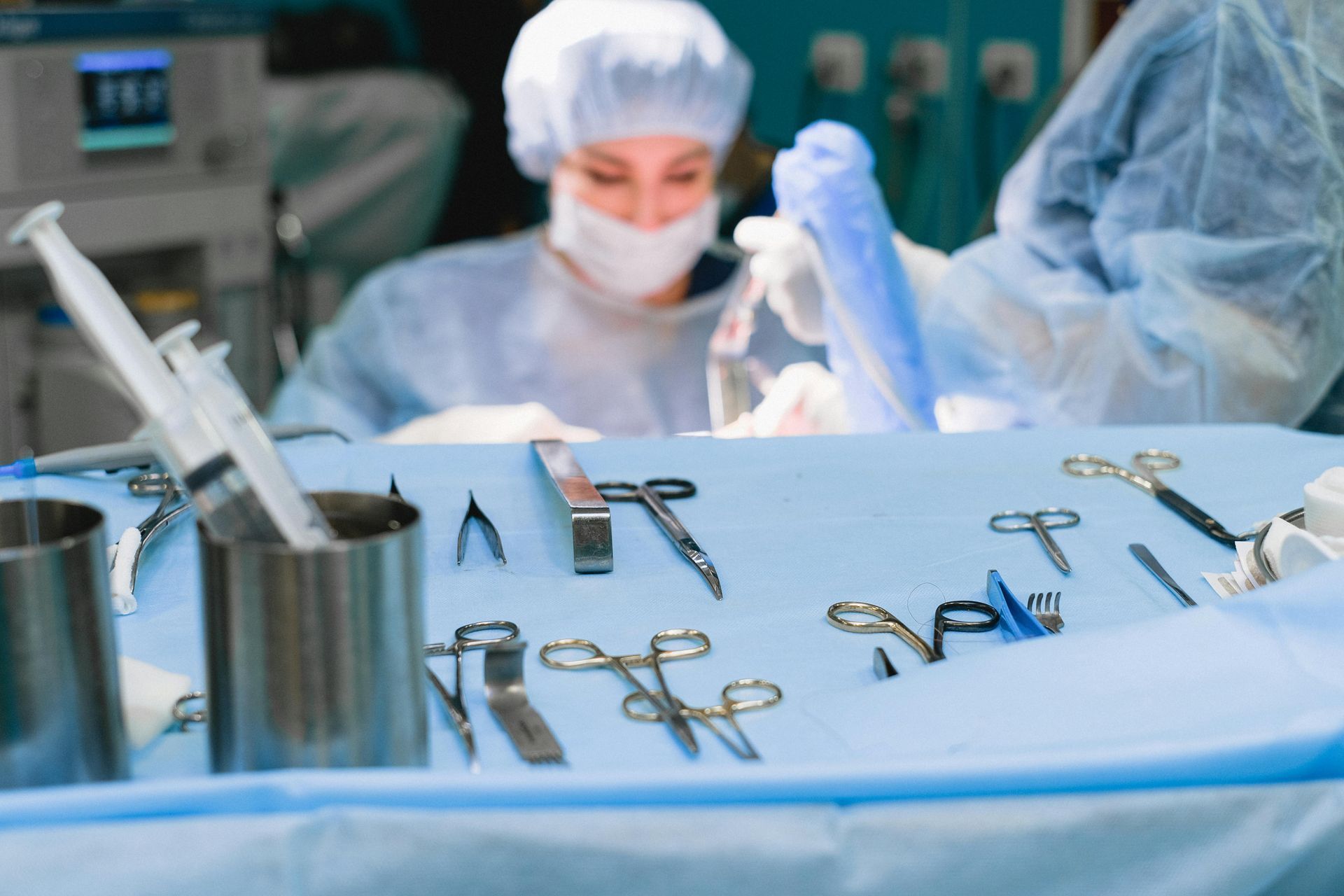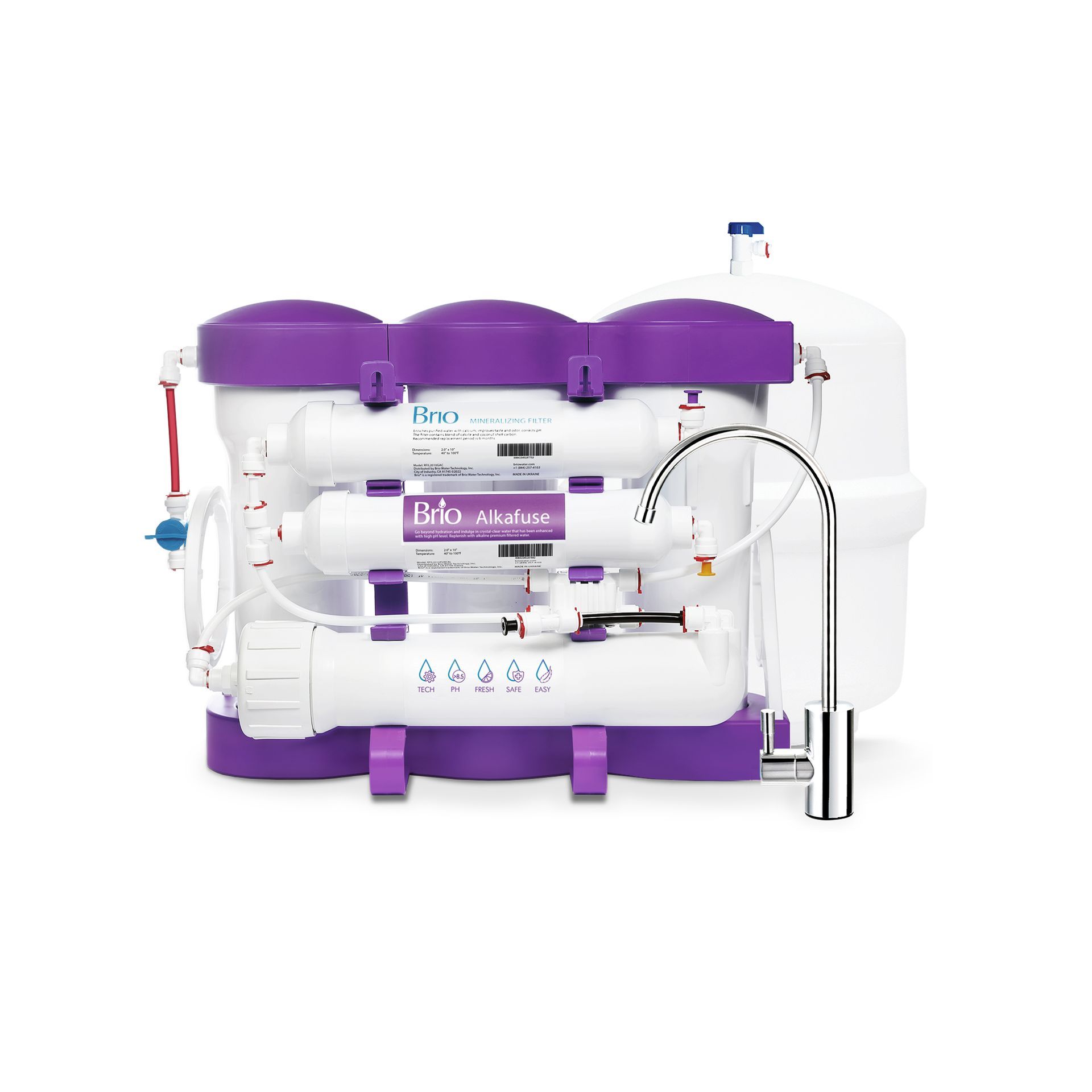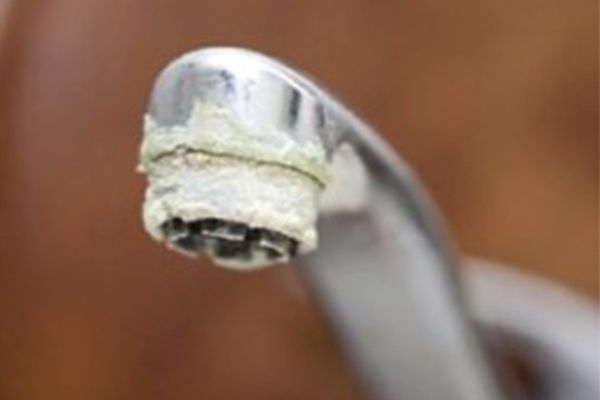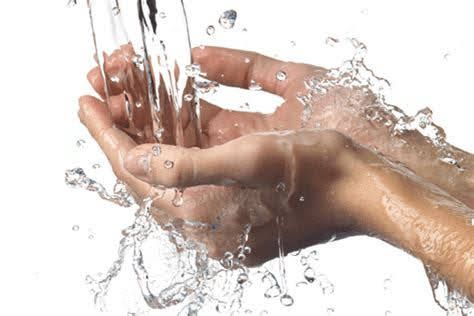Understanding AAMI ST108
Patricia Verdone • March 21, 2025
Understanding AAMI ST108: A Strong Recommendation for Surgery Centers

In healthcare, water plays a key role in cleaning, rinsing, and sterilizing instruments. That’s why AAMI released ST108. It’s a new standard for water quality in medical device processing.
While not required yet, it’s strongly recommended. Surgery centers should pay close attention.
ST108 stands for "Water for the Processing of Medical Devices." It was approved in August 2023. This new standard replaces AAMI TIR34, which was a technical report. ST108 is more formal. It lays out specific water quality guidelines.
But here’s the key: ST108 is not yet required. However, it is widely recommended for surgery centers that want to stay ahead.
Surgery centers process critical and semi-critical reusable instruments daily. These tools must be cleaned properly. Sterilization only works if the water used is pure and consistent.
Poor water quality can:
- Leave spots or film on tools
- Cause equipment corrosion
- Interfere with sterilization
- Lead to infection risks
ST108 offers guidance to prevent these problems. It helps protect patients, staff, and instruments.
While ST108 isn’t enforced by law, accreditation agencies and surveyors are beginning to look for signs of compliance. It’s a sign of excellence. It shows a center is going above the minimum. Centers that follow ST108 stand out. They reduce risks, increase trust, and make inspections easier.
What ST108 Recommends
The standard defines three water types:
- Utility Water – used for flushing and cleaning
- Critical Water – used for final rinses and steam
- Steam – used in sterilizers
Each has quality benchmarks for:
- pH
- Conductivity
- Hardness
- Organic and inorganic contaminants
- Microbial levels
- Endotoxins
Meeting these levels means installing or upgrading water systems. That might include:
- Whole-home softeners
- Reverse osmosis units
- Ultraviolet disinfection
- Carbon backwashing filters
- UV Lights
- Sediment filters
- Booster pumps
- or other equipment
Safeway Water Technologies
specializes in water filtration and water treatment. We currently serve many surgery centers, medical clinics, and hospitals. We know the ST108 standard inside and out. We can help by:
- Testing your current water
- Reviewing your existing system
- Recommending upgrades
- Installing new filtration systems
- Offering preventive maintenance
- Providing documentation
You don’t need to figure this out alone. We’ll walk you through it.
Since ST108 isn’t required, some centers may wait. But waiting has risks.
Tools may not be cleaned properly
Biofilm can buildup in pipes or filters
Auditors may ask about ST108 readiness
Long-term costs may rise from equipment damage
You may miss a chance to improve patient safety
Even though it’s voluntary, following ST108 is a smart business and clinical decision.
Compliance doesn’t happen overnight. It takes time and planning. Here’s what you can do now:
✅ Form a water management team
✅ Test your water sources
✅ Review your treatment systems
✅ Read the ST108 standard
✅ Get help from water experts
✅ Document improvements
Even small steps matter. They show intent. They show awareness. They show leadership.
While ST108 isn’t a regulation, auditors often look for best practices. Accrediting bodies such as AAAHC and The Joint Commission care about water quality. They may reference ST108 when evaluating sterilization processes. Centers that follow it may have smoother inspections. They’ll also have clearer documentation and fewer corrective actions.
We Make ST108 Easy
Our company offers turnkey solutions:
Installation of softeners, filters, and RO systems
Regular service and performance checks
Logbooks and testing results for inspections
We focus on simplicity. Our goal is to keep your surgery center running smoothly. You handle patients. We handle the water.
Long-Term Benefits of ST108
Even if not required, ST108 has BIG benefits:
- Cleaner instruments
- Less downtime
- Better sterilization results
- Fewer repairs on washers or sterilizers
- Happier inspectors
- Safer outcomes
- That’s a win for everyone.
VA and Federal Attention
The VA is already encouraging water management in line with ST108. The VHA Directive 1116(2), effective in January 2024, stresses water quality for device reprocessing. It mirrors many ST108 ideas. Other agencies may follow soon.
This shows where things are heading. ST108 may become mandatory in the future. Starting now gives your center a head start.
Be Proactive, Not Reactive
AAMI ST108 is not law. But it is smart. It protects patients, boosts compliance, and shows leadership. For surgery centers, it’s a chance to rise above the minimum.
The best centers don’t wait for rules. They prepare early. They improve constantly. They value water quality as part of patient safety.
If you're ready to explore ST108, we’re ready to help. We’ll guide you, test your water, recommend improvements, and support your team with worry-free service. Let’s make clean, compliant water one less thing for your staff to worry about. Contact Safeway Water Technologies here to start
your water journey.

By Patricia Verdone
•
March 27, 2025
How Hard Water Damages Hot Water Heaters—And How We Fix It Hard water causes real problems. It harms water heaters in homes and businesses. Most people don’t see it happening. But the damage is constant. And it costs you money. What Is Hard Water? Hard water contains minerals. Mainly calcium and magnesium. These minerals are natural b ut they don’t belong in your water heater. When water heats up, minerals solidify. They form scale inside the tank. That scale sticks to heating elements and tank walls. Scale buildup is like plaque. It coats everything inside the water heater. That layer slows down heat transfer. So the heater works harder. And it uses more energy. Your energy bill goes up. The water doesn’t heat as fast. And the unit wears out early. Hard Water in Residential Hot Water Heaters Home water heaters suffer silently. The scale keeps growing with each shower or wash. Over time, it takes longer to heat water. The tank starts to make popping or rumbling sounds. That’s scale breaking loose and bouncing around. Eventually, the heater fails. You’re left with cold water. And a big repair bill. Hard Water in Commercial Water Heaters Businesses have it worse. Restaurants, laundromats, hotels, and gyms rely on hot water. Hard water scale builds even faster under heavy use. It damages large commercial units. The scale coats heat exchangers, burners, and tanks. It reduces efficiency and capacity. Sometimes the system shuts down. When that happens, business stops. No hot water, no service. You might pay thousands to replace it. And thousands more in lost business. Signs of Hard Water Damage Here’s what to watch for: Strange noises from your water heater Water takes too long to get hot Hot water runs out too fast Higher utility bills Cloudy tap water White crust around faucets and drains These are warning signs. Don’t ignore them. Our Solution: Water Softening At Safeway Water Technologies , we fix this. Our water softeners remove the minerals that cause scale. No calcium. No magnesium. Just clean, soft water. With soft water, scale doesn’t form. Your water heater runs like new. It lasts longer. Heats faster. And saves you money. Whole-Home Water Softeners For homeowners, we install whole-home softeners. They treat all the water before it enters your pipes. That protects every appliance. Including your water heater, dishwasher, and washing machine. Soft water means fewer repairs. And a longer life for your equipment. Commercial Water Softeners For businesses, we go bigger. We design custom systems for your volume and flow needs. From small offices to big hotels, we’ve got it covered. Our commercial water softeners are built for heavy use. They keep your equipment clean and efficient. And your hot water reliable. Preventive Maintenance Plans We offer service plans too. Regular maintenance keeps your system running smoothly. We check the softener. Deliver salt. Repair systems. Test water hardness. And stop problems before they start. It’s simple. And it saves you a lot over time. Why Choose Us? We know water. We know how hard water affects appliances. And we know how to prevent water damage. Our systems are tested and proven. We serve both homes and businesses. From simple softeners to full water management plans, we do it all With Safeway Water Technologies, you get: Expert installation Reliable equipment Honest advice Fast service Long-term support We don’t just install systems. We protect your property. And your peace of mind. Don’t Wait Until It Breaks Hard water damage is sneaky. By the time you notice, it may be too late. Don’t wait for your hot water heater to fail. Call us now. We’ll test your water for free. We’ll show you what’s in it. And we’ll build a solution just for you.

By Patricia Verdone
•
March 13, 2025
Droughts are becoming increasingly common. When they happen, water supplies shrink, which can lead to serious problems for drinking water. A drought is a long period without rain. It causes lakes, rivers, and reservoirs to dry up. This could be a little or a lot. When water sources shrink, the quality of the water changes. Droughts impact drinking water in many ways. Some problems are obvious, and others are hidden but just as harmful. Lower Water Levels Droughts cause water levels to drop. Many towns and cities rely on surface water from lakes and rivers. When these sources dry up, there is less water to go around. Groundwater levels also fall. Wells can run dry. People who depend on private wells may struggle to find water. Higher Concentration of Contaminants When water levels drop, contaminants become more concentrated. Pollutants, minerals, and bacteria build up in the remaining water. This can make water unsafe to drink. It may also cause taste and odor problems. Common Water Problems During a Drought Droughts can introduce many new risks to drinking water. Some of the most common include: Increased Sediment in Water When reservoirs shrink, more dirt and debris mix into the water. This can cause water to be cloudy and harder to treat. Sediment can also damage pipes and appliances. It may shorten the life of water filters as well. Higher Levels of Bacteria Low water flow means warmer water. Bacteria thrive in warm conditions. This can be dangerous. Harmful microbes like E. coli can grow easily in warmer waters. This raises the risk of waterborne illnesses. More Harmful Chemicals When water is scarce, pollution becomes a bigger problem. Industrial waste, pesticides, and fertilizers become more concentrated. Nitrate levels often rise. This is dangerous for infants and people with health conditions. Increased Salt Content In coastal areas, droughts can lead to saltwater intrusion. When freshwater supplies shrink, salty ocean water seeps into wells. This makes drinking water salty and undrinkable. It can also corrode pipes and plumbing fixtures. How Droughts Affect Water Treatment Plants Water treatment plants work hard to keep water safe. But during a drought, their job becomes harder. Low water levels mean more contaminants. This forces treatment plants to use more chemicals. Extra treatment can change the taste and smell of water. Some people notice a more chlorine-like odor. Others may taste earthy or metallic flavors as well. Struggles with Supply Some treatment plants rely on large reservoirs. If these dry up, they must find new sources. Switching water sources can introduce new contaminants. It may also require new filtration methods. Water Restrictions During a drought, many areas limit water use. You may not be able to water your lawn or wash your car. Sometimes, restrictions affect drinking water, too. People may need to boil water before drinking it. In extreme cases, bottled water or filtration may be the only option. If you live in a drought-prone area, preparation is key. Install a Home Filtration System A water filtration system removes many contaminants. It can improve taste, remove sediment, and eliminate harmful bacteria. Reverse osmosis is one of the best options. It removes salts, nitrates, and chemicals. A whole-home filtration system can protect your entire water supply. Use Water Softeners if Needed If drought conditions cause high mineral levels, a water softener can help. It removes hardness and prevents buildup in pipes and appliances. Soft water can also extend the life of your water heater and dishwasher. Test Your Water Regularly Drought conditions change water quality. Regular water testing helps you stay informed. Test for bacteria, nitrates, and heavy metals. If you notice changes in taste or smell, test your water immediately. Store Emergency Water In severe droughts, water shortages can happen. Keep an emergency supply of clean drinking water. Store at least one gallon per person per day. Keep enough for at least three days. What Happens When a Drought Ends? Rain may return, but the effects of a drought linger. When rain finally comes, it can wash dirt and debris into water supplies. Flooding can carry pesticides and sewage into rivers and lakes. This can cause temporary water quality problems. Long droughts can also cause cracks in pipes. When water starts flowing again, leaks and breaks may appear. This can lead to boil water advisories or water shortages. Why Water Filtration Matters No matter the weather, clean drinking water is essential. A water filtration system gives peace of mind. It removes harmful contaminants and improves water taste. In drought conditions, it provides an extra layer of protection. Droughts can have a big impact on drinking water. They lower water levels, increase pollution, and make treatment more difficult. If you live in a drought-prone area, take the proper steps to protect your water. Install a filtration system, test your water, and store an emergency supply. Clean water is a necessity. With the right precautions, you can keep your drinking water safe—no matter the conditions.

By Patricia Verdone
•
March 6, 2025
Water is essential. But is your water clean and safe? Many homeowners assume their water is safe, especially if it appears clear. Unfortunately, this is not always true. Why Water Quality Matters Clean water is important for health. Contaminated water can cause sickness. It can also damage appliances. Hard water leaves stains and buildup. Chemicals like chlorine affect taste and smell. A water filter can help. But do you need one? Let’s explore the signs. Signs You Need a Water Filter Not sure if you need a filter? Watch for these warning signs: 1. Bad Taste or Odor Does your water taste strange? Does it smell like chlorine or rotten eggs? These are signs of contamination. A water filter can improve taste and remove odors. 2. Cloudy or Discolored Water Clean water should be clear. If your water looks cloudy, brown, or yellow, it may contain sediments, rust, or minerals. A water filtration system removes these impurities. 3. Hard Water Buildup White spots on dishes? Scale buildup on faucets? Soap that won’t lather? These are signs of hard water. A water softener can fix this issue. 4. Skin and Hair Problems Hard water makes skin dry and itchy. It also causes brittle hair. A whole-house filtration system can soften water and improve your skin and hair. 5. Lead or Other Contaminants Older pipes can contain lead. Some areas have high levels of PFAS, nitrates, and other pollutants. A reverse osmosis system removes dangerous contaminants. 6. Frequent Plumbing Issues Mineral buildup can clog pipes. Over time, this leads to costly repairs. A water filter can prevent damage to your plumbing system. 7. Well Water Concerns Do you use well water? It may contain bacteria, iron, or sulfur . A UV filter and carbon filter can protect your water supply. 8. Chlorine and Chemical Concerns City water often contains chlorine. While it kills bacteria, it also affects water quality. A carbon filter removes chlorine for better-tasting water. 9. Appliance Wear and Tear Hard water shortens the life of dishwashers, coffee makers, and water heaters. A water filtration system protects your appliances. Types of Water Filters If you notice any of these issues, a filter can help. But which one should you choose ? 1. Carbon Filters Carbon filters remove chlorine, odors, and some chemicals. They improve taste and smell. These are found in pitcher filters, faucet filters, and whole-house systems. 2. Reverse Osmosis Systems Reverse osmosis (RO) removes lead, arsenic, nitrates, and PFAS. It’s one of the most effective filtration methods. An under-sink RO system provides pure drinking water. 3. Water Softeners Water softeners remove calcium and magnesium. This prevents scale buildup in pipes and appliances. Soft water is better for skin, hair, and cleaning. 4. UV Water Purifiers UV systems kill bacteria, viruses, and parasites. They are great for well water users. 5. Whole-House Filtration Systems A whole-house system filters water at the main supply. It removes sediments, chlorine, and other contaminants before the water reaches your taps. Choosing the Right Water Filter Not all homes need the same filter. The right choice depends on your water quality. Step 1: Test Your Water A water test identifies contaminants, hardness levels, and chemical residues. Testing helps you choose the right filtration system. Step 2: Determine Your Needs Bad taste or chlorine? Get a carbon filter. Hard water issues? Install a water softener. Heavy metals or PFAS? Use reverse osmosis. Bacteria concerns? Consider a UV system. Multiple issues? A whole-house filtration system may be best. Step 3: Get Professional Advice A water filtration expert can help. They will analyze your water and recommend the best solution. Benefits of Using a Water Filter Why invest in a water filtration system? Here are the key benefits: 1. Healthier Drinking Water Filtered water is safer. It removes harmful contaminants, chemicals, and bacteria. 2. Better Taste and Smell Say goodbye to chlorine, sulfur, and metallic tastes. Enjoy fresh, clean water every time. 3. Protects Your Plumbing and Appliances Filtration reduces mineral buildup in pipes, dishwashers, and water heaters. This extends their lifespan. 4. Softer Skin and Hair Hard water makes hair dull and skin dry. A water softener improves skin and hair health. 5. Saves Money Bottled water is expensive. A home filtration system provides clean water for less. It also prevents costly plumbing repairs. 6. Eco-Friendly Filtering water at home reduces plastic waste from bottled water. It’s a greener choice. If you have any of the signs listed, a water filter is a smart investment. The right system depends on your water quality and needs. Not sure where to start? Get your water tested. Then choose a filter that matches your needs. Clean, safe water is essential for your health, home, and lifestyle. A water filtration system makes sure you have the best quality water every day. Need help finding the right solution? Contact us today!

By Patricia Verdone
•
February 27, 2025
Calcium buildup on kitchen faucets is a common problem. It appears as white, chalky deposits. Over time, it can reduce water flow and damage fixtures. But what causes this issue? The main culprit is hard water. Hard water contains high levels of minerals, primarily calcium and magnesium. When water evaporates, these minerals remain behind. They form a hard, crusty residue known as limescale. Hard water is measured in grains per gallon (GPG). Anything above 7 GPG is considered hard. A water-treatment professional can test for this. The higher the hardness level, the more calcium buildup occurs. Water flows through your pipes and comes out of the faucet. As it dries, it leaves mineral deposits behind. Over time, these deposits build up, creating white spots and crusty layers. The problem worsens when: Water sits on surfaces and evaporates. Faucets are not wiped dry after use. Hot water speeds up mineral deposits. Other Factors Contributing to Buildup Besides hard water, other factors play a role in calcium buildup: Heat – Hot water evaporates faster, leaving more mineral deposits. Low Water Pressure – Slow-moving water allows minerals to settle. Aging Pipes – Older pipes may release more minerals into the water. Frequent Faucet Use – The more water flows, the more deposits accumulate. Calcium buildup isn't just an eyesore. It can also: Clog faucet aerators. Reduce water pressure. Shorten the lifespan of fixtures. How to Identify Hard Water in Your Home Signs of hard water include: White spots on dishes and glassware. Soap scum in sinks and tubs. Rough, dry skin after showering. Clothes feeling stiff after washing. If you notice these signs, your water likely contains high calcium and magnesium levels. Preventing Calcium Buildup The best way to prevent buildup is to treat hard water. Here’s how: A water softener removes calcium and magnesium. It exchanges hard minerals for sodium or potassium ions. Softened water reduces scale buildup. Install a water softener. Whole-home filters can reduce mineral levels. Point-of-use filters can help with drinking water. After using the sink, dry the faucet with a cloth. This prevents water from evaporating and leaving residue. Vinegar dissolves mineral deposits. Soak a cloth in vinegar and wrap it around the faucet. Let it sit for 30 minutes, then scrub with a brush. Weekly cleaning prevents heavy buildup. A mix of baking soda and vinegar helps break down limescale. Ignoring calcium buildup can cause major issues. Over time, it: Clogs pipes – leading to slow drainage. Damages water heaters – Hard water reduces efficiency and the overall life of the water heater. Increases appliance wear – Dishwashers and coffee makers suffer. Hard water can also increase energy bills. Appliances work harder when coated with limescale. A water softener is the most effective way to combat calcium buildup. It: Prevents scale formation. Extends the life of plumbing & fixtures. Improves soap lathering and cleaning power. Homes with water softeners see fewer issues with limescale, soap scum, and clogged fixtures. Calcium buildup on kitchen faucets happens because of hard water. As water evaporates, minerals settle on surfaces. Over time, this forms a chalky, white residue known as limescale. To prevent buildup, consider installing a water softener. Regular cleaning, drying faucets, and using vinegar solutions can also help. Hard water affects more than just faucets—it impacts appliances, pipes, and even your skin. Fixing the problem at the source ensures cleaner water, better efficiency, and longer-lasting fixtures. If you're dealing with hard water, investing in a water softener is the best solution.

By Patricia Verdone
•
February 20, 2025
Pets need clean water. Just like humans, they rely on fresh water to stay healthy. But tap water isn’t always the best choice. It can contain chlorine, heavy metals, and other contaminants. Filtered water removes these harmful substances. It’s a simple way to protect your pet’s health. Most people assume tap water is safe. However, it often contains chemicals and impurities. Chlorine and fluoride are common additives. Heavy metals like lead and mercury may also be present. These can build up in a pet’s body over time. Some areas have high levels of bacteria or nitrates. These contaminants can cause digestive issues. Filtered water removes or reduces these risks. Filtered water is free from harmful substances. It eliminates chlorine, heavy metals, and bacteria. This makes it safer for drinking. When pets drink clean water, their bodies function better. They stay hydrated and avoid toxic buildup. Hydration is key to good health. Dehydration can lead to kidney problems and other issues. Filtered water encourages proper hydration. Better Taste, More Drinking Pets prefer fresh, clean water. Chlorine can make water taste and smell bad. This may cause pets to drink less. Less water intake can lead to dehydration. Filtered water tastes better and is free from odors. When pets enjoy their water, they drink more. This supports kidney and urinary tract health. Health Benefits of Filtered Water Improved Digestion-Contaminants in tap water can upset a pet’s stomach. Filtered water is gentler on digestion. Healthier Skin and Coat-Chemicals in water can cause dry skin. Clean water promotes a shiny, soft coat. Better Kidney Function-Heavy metals and chemicals stress the kidneys. Filtered water reduces the workload on these organs. Stronger Immune System-Fewer toxins mean better overall health. A strong immune system helps pets fight illness. Fewer Allergies-Some pets are sensitive to water additives. Removing them can reduce allergic reactions. Filtered Water for Different Pets Dogs: Dogs need lots of water. They are active and sweat through their paws. Staying hydrated keeps them energetic. Filtered water supports their metabolism. It also helps with temperature regulation. Cats: Cats can be picky about water. They often prefer running water. A water filter ensures their water is fresh. Hydrated cats have fewer urinary problems. This is especially important for male cats who are prone to urinary tract infections. Small Pets: Rabbits, guinea pigs, and hamsters need clean water too. Their small bodies are sensitive to toxins. Even low contaminant levels can harm them. Filtered water keeps them safe and healthy. Birds: Birds are delicate creatures. They need pure water for hydration and bathing. Tap water chemicals can irritate their skin and feathers. Filtered water prevents these issues. R eptiles and Fish: Reptiles and fish depend on clean water. Chlorine and heavy metals can be harmful. Filtered water is the best option for their tanks and habitats. Signs Your Pet Needs Better Water Drinking less than usual Digestive issues Dry, flaky skin Dull coat Frequent urinary issues Bad breath If you notice these signs, check their water source. Switching to filtered water may help. How to Provide Filtered Water Use a Water Filter A high-quality water filter removes harmful substances. Choose one designed for home use. Invest in a Pet Fountain Running water encourages pets to drink more. Many pet fountains include built-in filters. Change Water Frequently Fresh water is best. Replace it at least once a day. Clean Bowls Regularly Bacteria can grow in water bowls. Wash them with soap and water daily. Monitor Your Pet’s Drinking Habits Watch for changes in how much they drink. Increased or decreased intake may signal a problem. Filtered water is the best choice for pets. It removes harmful chemicals and tastes better. Clean water supports hydration and overall health. Whether you have a dog, cat, bird, or small pet, filtered water benefits them all. Making the switch is a simple step toward a healthier, happier pet. Give your pets the best—provide them with clean, filtered water every day.

By Patricia Verdone
•
February 13, 2025
First impressions matter . Guests expect luxury when they check into a hotel, and water quality significantly shapes their experience. Cloudy water or odd tastes can leave a lasting negative impression and may lead to poor reviews. Water quality is often a subtle yet powerful factor in how guests perceive their stay. Bad water impacts guests directly. Chlorine smells, iron stains or hard water residues are immediately noticeable. Showering in hard water feels unpleasant, taste impacts brushing teeth & drinking. These minor inconveniences can pile up to create dissatisfaction. Guests may also find stains on linens or dull, faded laundry, which reflects poorly on the hotel's image. Bad water also damages hotel infrastructure. Hard water leads to the buildup of minerals in pipes and appliances. Over time, this clogging reduces water flow and efficiency. Water heaters are especially vulnerable, as mineral buildup can cause them to fail prematurely. The constant strain on appliances and plumbing results in higher maintenance costs and the need for frequent replacements. Ignoring water quality comes at a high cost. Poor water leads to increased energy bills as appliances work harder to compensate for inefficiencies. Maintenance costs rise as plumbing systems degrade, and guest complaints can damage the hotel's reputation. For hotels, providing subpar water is not just an operational issue but a significant business risk. Our advanced filtration systems tackle water problems at the source. By removing impurities, these systems improve both the taste and clarity of water. Guests will notice the difference, and it enhances their overall experience. For hotels with hard water issues, water-softening solutions are essential. These systems protect pipes and appliances, ensuring that they function efficiently and last longer. Regular maintenance is crucial to sustaining water quality. Our ongoing servicing and monitoring programs prevent issues before they arise, ensuring consistent water quality throughout the hotel. With proactive care, your hotel can avoid unexpected costs and maintain high standards. We also offer eco-friendly options for hotels seeking sustainable solutions. Chemical-free filtration systems are not only effective but also align with the growing demand for environmentally conscious practices. By lowering your hotel's carbon footprint, these systems contribute to a greener future. Partnering with experts makes all the difference. We understand the unique needs of hotels and provide custom solutions tailored to your property. With reliable service and long-term support, we ensure that your water quality remains excellent. Bad water in hotels is a solvable problem, and we are here to help. Deliver quality water, keep your guests happy, and enjoy lasting savings by working with us.

By Patricia Verdone
•
February 5, 2025
Did you know... There are two ways to treat your water: Chemically, with harsh soaps and detergents, or mechanically with a water treatment system. The Bad News...You are chemically with harsh soaps & detergents. It's expensive. It's tough on your clothes. It's tough on your skin. And it's tough on your home. Families spend hundreds of dollars on expensive soaps & cleaners and only a fraction of the money goes toward actual soap. The Sad Truth... You are pouring your money down the drain. Most products are full of chemical softeners and unnecessary costs. And expensive packaging adds to our growing pollution problem. Another dilemma: Everything from soap to bottled water is packaged in plastic. 50% of all plastic is used once and thrown into landfills or worse into our waterways. Enough plastic is thrown away each year to circle the earth four times. It takes 500-1000 years for plastic to biodegrade. We are drowning in plastic but there is an EASY and AFFORDABLE solution. Make A Change... By using our specially designed softeners and laundry oxidizer, you can save 100's of dollars and no longer be poring your money down the drain. You will provide a healthier home for your family and future generations to come. With our products , you will become a greener household. Reduce VOCs and other chemicals in your home. It all starts today!

By Patricia Verdone
•
January 30, 2025
Lead contamination in drinking water is a pressing concern in the United States. Certain states have higher numbers of lead service lines, increasing the risk of exposure. Illinois tops the list with approximately 1,071,355 lead pipes. Florida follows closely with about 1,014,952, and Ohio has around 809,990. Other states with significant numbers include Pennsylvania and New York. NRDC.ORG Lead enters drinking water primarily through the corrosion of plumbing pipes containing lead. This is especially prevalent in areas with older homes. The health implications can be severe. Lead exposure can cause damage to the brain, red blood cells, and kidneys. Young children and pregnant women are particularly vulnerable. EPA.GOV To mitigate lead exposure, several steps can be taken: Run the Tap: Before using water for drinking or cooking, let it run. If you have a lead service line, let the water run for 3-5 minutes. Without a lead service line, 30-60 seconds is sufficient. This helps flush out any lead that may have leached into the water. HEALTH.STATE.MN.US Use Cold Water: Always use cold water for drinking, cooking, and preparing baby formula. Hot water can dissolve lead more quickly, increasing the risk of contamination. Boiling water does not remove lead and may concentrate it further. CDC.GOV Test Your Water: The only way to know if lead has been reduced by letting it run is to check with a test. If letting the water run does not reduce lead, consider other options to reduce your exposure. HEALTH.STATE.MN.US Replace Lead Plumbing: Identify and replace lead-containing plumbing fixtures and service lines. If there is a lead service line, replace it in full, from the main to your home. Contact your municipal water system before replacing the lead service line on your property. Replace brass faucets, fittings, and valves that do not meet the current definition of “lead-free”. The current definition went into effect on January 4, 2014; therefore, any “lead-free” plumbing materials purchased and/or installed before that date should be discarded or replaced. DEP.NJ.GOV In October 2024, the Environmental Protection Agency (EPA) issued a final rule requiring the removal of all lead pipes within ten years. The regulation also lowers the action level of lead contamination to 10 parts per billion, effective in 2027. This initiative aims to eliminate lead exposure from drinking water nationwide. EN.WIKIPEDIA.ORG While these measures are crucial, public awareness and proactive action at the individual level remain essential. Regularly testing your water, staying informed about local water quality reports, and advocating for infrastructure improvements can significantly reduce lead exposure risks. In conclusion, lead contamination in drinking water is a significant issue, particularly in states with older infrastructure. By taking proactive steps, both at the individual and community levels, we can work towards safer drinking water for all.

By Patricia Verdone
•
January 23, 2025
A strange smell in your water is never a good sign. It can be unsettling, and worse, it can signal serious water quality issues. At Fix Any Water , we specialize in finding the cause of water odors and providing the right filtration solutions. Common Causes of Smelly Water Your water should be clean and odor-free. If it smells bad, something is wrong. Here are the most common causes of water odors: 1 . Rotten Egg Smell (Sulfur) Caused by hydrogen sulfide gas. Comes from natural decay, sulfur bacteria, or a problem with your water heater. Creates a strong, unpleasant smell. Can corrode plumbing and stain fixtures. 2 . Musty or Earthy Odor Often from decaying organic material in well water. Sometimes caused by bacteria, algae, or mold growth in pipes. Can make water taste as bad as it smells. 3 . Chlorine Smell Municipal water systems use chlorine to disinfect. Strong chlorine odors mean levels are too high. May create harmful byproducts in water. 4 . Sewage or Fishy Smell Could be due to decaying organic matter in water. Sometimes linked to high levels of bacteria or chemical contamination. 5 . Gasoline or Chemical Smell Rare but serious. Could mean a nearby fuel spill or industrial contamination. Needs immediate testing and filtration. How Fix Any Water Fixes Smelly Water We offer solutions based on the cause of the smell. Every home or business is different. Our experts diagnose the problem and recommend the right solution. 1 . Sulfur Removal Systems Hydrogen sulfide needs special filtration. We use carbon filters, aeration, peroxide, or oxidizing filters. Removes sulfur gas before it reaches your tap. 2 . Whole Home Water Softeners Hard water can trap smells in pipes. Softening the water reduces scale buildup. Helps remove iron and improves overall water quality. 3 . Carbon Filtration Ideal for chlorine, musty odors, and organic contaminants. Activated carbon absorbs odors. Works great for city and well water. 4 . Reverse Osmosis (RO) Systems Best for removing chemical smells. Provides pure, great-tasting water. Removes chlorine, bacteria, and even trace chemicals. 5 . UV Disinfection Eliminates bacteria that cause musty or fishy odors. Used in combination with filtration for best results. Keeps water safe for drinking and cooking. 6 . Well Water Testing & Treatment Well water can change over time. We test for bacteria, iron, sulfur, and other contaminants. Custom solutions keep well water fresh and odor-free. Why Choose Fix Any Water? We don’t just sell filters. We solve water problems. 1 . Custom Solutions Every water system is different. We test, analyze, and design a system just for you. No guesswork—just clean, fresh water. 2 . No-Chemical Filtration Options We offer natural filtration methods when possible. No need for harsh chemicals in your home. Safe for families, pets, and appliances. 3 . Expert Installation & Service We don’t just install systems—we maintain them. Regular service keeps filters working. Our team is trained in home, business, and medical-grade water systems. 4 . Reliable & Affordable We offer financing options for big projects. Maintenance plans keep systems running smoothly. We work with homeowners, restaurants, breweries, medical centers and more. Don’t Live with Smelly Water Bad-smelling water is a sign of something wrong. Please don’t ignore it. Whether it’s sulfur, chlorine, bacteria, or chemicals, Fix Any Water has a solution. Contact us today for your free water test!

By Patricia Verdone
•
January 16, 2025
Understanding Sulfur in Water Sulfur is common in well water. It gives water a rotten egg smell. This happens when sulfur bacteria or hydrogen sulfide gas is present. The smell is unpleasant. It can also cause plumbing issues. Water with sulfur can stain sinks and fixtures. It may also make water taste bad. How Hydrogen Peroxide Works Hydrogen peroxide (H₂O₂) is a strong oxidizer. It reacts quickly with contaminants. When added to water, it breaks down into water and oxygen. This makes it safe for water treatment. It removes sulfur by oxidizing hydrogen sulfide gas. This reaction turns it into a solid that can be filtered out. Is Hydrogen Peroxide Safe? Yes, hydrogen peroxide is safe for water treatment. It does not leave harmful residues. Unlike chlorine, it does not create dangerous byproducts. It is used in the food and medical industries. It naturally breaks down, leaving no chemical traces. Compared to Other Sulfur Removal Methods Is It Safer Than Chlorine? Hydrogen peroxide is often considered safer than chlorine for water treatment. Chlorine can create harmful byproducts, such as trihalomethanes (THMs). These compounds have been linked to health risks. Hydrogen peroxide, on the other hand, breaks down into water and oxygen. It does not leave harmful residues. Unlike chlorine, it does not produce a strong chemical smell or taste. It is also less likely to irritate skin and eyes. For these reasons, many prefer hydrogen peroxide over chlorine for treating sulfur in water. There are different ways to remove sulfur from water. Here are a few: Chlorine Injection – Kills bacteria but leaves byproducts. Aeration – Uses oxygen but may not be effective for high sulfur levels. Iron Filters – Removes sulfur but requires regular maintenance. Activated Carbon – Helps with odor but may not remove all sulfur. Hydrogen peroxide works faster than most methods. It does not require long contact times. It is also effective in killing bacteria. Benefits of Using Hydrogen Peroxide No Harmful Residues – Breaks down into water and oxygen. Quick Reaction Time – Works faster than chlorine. Removes Bacteria – Helps keep water safe. No Unpleasant Taste – Does not add chemicals to water. Environmentally Friendly – Leaves no toxic byproducts. How to Use Hydrogen Peroxide for Sulfur Removal Hydrogen peroxide is injected into water using a metering pump. The amount needed depends on sulfur levels. After injection, the water passes through a filter. This removes oxidized sulfur particles. A professional should test the water before treatment. This ensures the right dosage is used. Does Hydrogen Peroxide Affect Plumbing? No, hydrogen peroxide is safe for pipes. It does not cause corrosion like chlorine. It also helps prevent bacteria buildup. This keeps plumbing systems clean. Is It Safe for Drinking Water? Yes, when used correctly, it is safe. It is commonly used in food production. The key is proper dosing. Too much can leave a slight taste. A filtration system helps remove excess. How Often Should the System Be Maintained? Regular maintenance is important. Filters should be cleaned or replaced as needed. The injection system should be checked monthly. Water tests should be done to ensure proper treatment. Hydrogen peroxide is a safe and effective way to treat sulfur in water. It works quickly and leaves no harmful residue. It is better than chlorine in many cases. It also helps keep plumbing free from bacteria. For best results, work with a professional. They can ensure the right system is in place. Safe water is important for health and the home. Hydrogen peroxide makes it possible.
